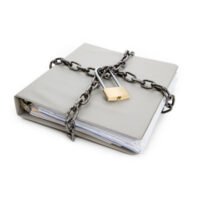When Does Maryland Shield Court Records Of Domestic Violence Cases?

When the Maryland courts deny or dismiss a request for a protective order in an alleged domestic violence case, it is possible to shield the records related to that proceeding. These shielded records are not publicly available. Only certain individuals with a legitimate reason may access these records.
What Does it Mean to Shield Domestic Violence Records?
As explained in Maryland Code of Family Section 4-512, shielding effectively removes certain court records from general public access. Though depending on the nature of the court record in question, the shielding process can fluctuate.
For records maintained at the courthouse, shielding refers to the removal of the records to a secure location with limited access. Only individuals with a legitimate reason are allowed to access those records.
For electronic records maintained on a website of the Maryland Judiciary, shielding refers to the complete removal of the records from public access. The publicly accessible areas of the website should not provide any identifiable information about the records, including but not limited to party names, case numbers, and the like.
It is vital to note that this shielding process applies to court records. In this context, the term court record includes:
- Indexes, docket entries, petitions, memoranda, proceeding transcriptions, electronic recordings, orders, and judgments; and
- Electronic information about court proceedings that is available online through the Maryland Judiciary.
When Does Shielding Apply to Domestic Violence Records?
As outlined in Section 4-512, shielding of domestic violence records typically happens upon denial or dismissal of a protective order. If either party files a written request to shield the court records of such a proceeding, the court will schedule a hearing.
After such a hearing, the Maryland courts will only approve the shielding of domestic violence records if:
The petition for an interim, temporary, or final protective order was denied or dismissed;
- A final protective order was not previously issued with respect to the parties in question;
- The alleged abuser was not convicted of any abusive crime against the alleged victim; and
- There is not a proceeding in progress between the parties that relates to a protective order or criminal charge of abuse.
Who Can View Shielded Domestic Violence Records?
As detailed in Section 4-512, shielded records in domestic violence cases are accessible to certain individuals. If there is a legitimate reason to view shielded records, the following individuals may gain access:
- Law enforcement officers;
- Attorneys representing either party in a legal proceeding;
- Members of the State’s Attorney’s office;
- Employees of a local department; and
- Service providers for victims of domestic violence or abuse.
In addition, there is a way for other individuals to gain access to shielded records. Any person not listed above may file a subpoena or motion to access the records. If a Maryland court finds such an individual has a legitimate reason, they may grant access to the shielded records under specific conditions. Though in the process, the court must balance the need for access against the right to privacy and any adverse consequences.
Do You Need Legal Help?
If you need legal assistance, we can help. Don’t hesitate to reach out to the Bel Air domestic violence attorneys at Schlaich & Thompson, Chartered for a consultation.























